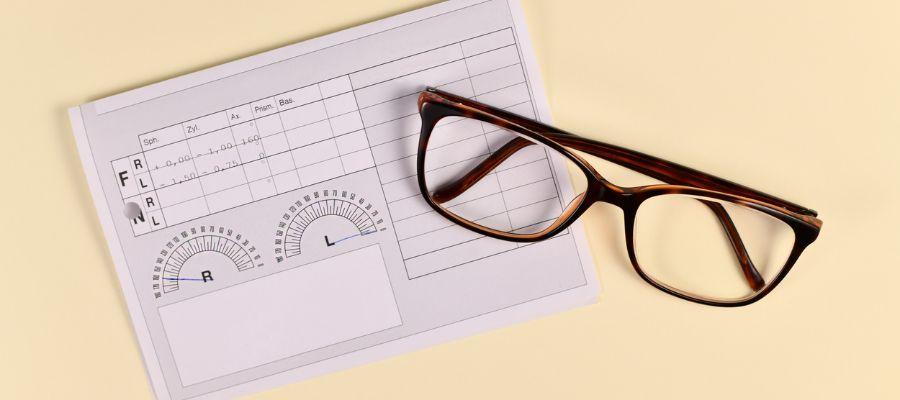
How Do I Adjust To Wearing Eyeglasses For The First Time Or To A New Prescription?
Navigating through your day when you're wearing glasses for the first time or adjusting to a new prescription can be challenging, but at the Fifty Dollar Eye Guy in Pensacola, FL we're more than capable of helping you on this journey. With Dr. Joseph Tegenkamp, you'll experience friendly professionalism coupled with exceptional customer service. Your comfort and satisfaction are our greatest concern while we work together to optimize your vision, whether you're getting used to your first pair of spectacles or adapting to a new lens strength. In our large selection of fashionable eyewear, you'll not only find glasses that improve your sight but also enhance your style. Our staff is ready, get in touch, and book an appointment today.
Understanding Your Prescription
Importance of understanding your prescription
Glasses can be an essential tool in helping you see more clearly. When you've made that decision to improve your vision, understanding your prescription becomes more important than ever. Knowing what those numbers on your prescription mean helps you select the right glasses for your needs. It also ensures you're informed and ready to ask your optometrist the right questions, contributing to a more effective eye care routine.
Reading your glasses prescription
Your glasses prescription may seem like a foreign language at first glance. But don't worry - all those numbers and terms have specific meanings that are quite straightforward once understood. Here's a snap-shot of what you'll typically find on a prescription: Sphere (indicating the strength of your lenses), Cylinder and Axis (both related to astigmatism), and Addition (specific to reading prescriptions or progressive lenses).
Changes in eye glass prescription
Just as with any health-related matter, your eyes can also change over time. These shifts can be influenced by aging, health conditions, and even lifestyle. That’s why it's necessary to have your eyes examined on a regular basis, as changes in your vision may require an update to your prescription.
Preparing for Your New Glasses
Setting realistic expectations
Don't expect instant perfect vision the moment you put on your new glasses. It takes a while for your eyes to adjust to the new lenses. So, be patient with yourself and your eyes. Think of this as an investment not only in your sight but also in your overall well-being.
Transitioning phase for new eyeglass users
If you're a first-time eyeglass wearer, the transition may feel somewhat odd or even uncomfortable at first. Life in HD surely looks better but remember, your eyes need time to adjust to the new normal. So, take it easy and allow your eyes to gradually get used to seeing through glasses.
Transitioning phase for a new prescription
Similarly, if you're transitioning to a new prescription, it can feel like you're starting all over again. Even a slight change in prescription can result in an initial sensation of imbalance or distortion. However, these sensations should stabilize after a brief adjustment period.
Adapting to Your New Glasses
First few days with new glasses
Your initial days with new glasses may feel a bit odd. You might even experience slight headaches or dizziness. However, this is quite normal as your brain adjusts to the new visual signals it's receiving. The key during this period is patience and consistency. Try to wear your glasses as much as possible to speed up the adjustment process.
Potential adapting issues
During the adjustment phase, you might face issues like temporary headaches, dizziness, or difficulty in distinguishing distances. But don't fret! These are all common experiences when adapting to new glasses and will resolve with time.
Techniques to speed up adaptation
There are some tricks to help speed up the adaptation process. Firstly, wear your glasses as much as possible. This helps your eyes and brain get accustomed to the new prescription. Secondly, don't switch back and forth between your old and new glasses. This can delay the adjustment period.
Overcoming Initial Discomfort
Common sources of discomfort
Minor discomfort can occur when you first start wearing your glasses or adjust to a new prescription. This is typically due to your eyes getting used to the new way of seeing or the glasses' frames pressing against your nose or ears.
Tips to minimize initial discomfort
To minimize the initial discomfort, ensure that your glasses fit properly. They should rest comfortably on the bridge of your nose and ears without pressing too hard. Also, alleviate any discomfort during the adjustment period by taking brief breaks away from visually demanding tasks.
When to consult your optometrist
If your discomfort persists for more than a week or if you experience severe headaches, blurred vision, or sustained dizziness, it may indicate a problem with your prescription or the fit of your glasses. In such cases, it's important to consult your optometrist.
Dealing with Visual Changes
Understanding the visual changes
Getting new glasses or a new prescription can change how you perceive the world visually. Initially, objects may appear distorted, tilted, or seemingly changing size. Understanding that these visual changes are part of the adaptation process can help alleviate any concern or anxiety you may feel.
Coping with altered depth perception
A new pair of glasses, especially ones with a higher prescription, can temporarily affect your depth perception. Tasks such as pouring a glass of water or descending stairs can seem challenging initially. With time and use, your brain will adjust to these changes and your depth perception will normalize.
Dealing with distortions or blurred vision
Experiencing distortions or blurred vision can be common when adapting to new glasses. To deal with this, ensure your glasses are clean and try to move your eyes more than your head when looking at different things. If these disturbances persist, consult your optometrist to check if there has been a mistake in your prescription or lens creation.
Maintaining Your Glasses
Cleaning tips for new glasses
Ensure your glasses have a long life by cleaning them regularly. A microfiber cloth is excellent for removing dirt and smudges without scratching the lens surface. Also, avoid using harsh chemicals or rough materials that can potentially damage your lenses.
Proper handling of your eyewear
Proper handling of your eyeglasses extends beyond cleaning. Make sure you pick them up by the bridge, not the lens, to avoid smudging. When removing glasses, use both hands to avoid warping the glasses' frames. Lastly, store your glasses in a protective case when not in use.
Importance of routine eye check-ups
Routine eye check-ups help identify changes in your vision and common eye conditions even before symptoms begin, ensuring that your prescription remains up-to-date, and catching any potential issues early.
Experiencing Issues with New Glasses
Typical issues experienced
It's normal to experience some issues when you first start wearing new glasses. These might include discomfort around the ears and nose, headache, dizziness, visual distortions, and nausea. Usually, these issues are temporary and will resolve within a few days.
Solving minor fit issues
If your glasses are causing discomfort or seem to be slipping down your nose, you might be dealing with a fit issue. This can often be fixed by minor adjustments. Most optical shops can assist with basic adjustments even long after purchase.
When to seek professional help
If your issues persist after a few days, or if you're experiencing persistent eye strain or headaches, it's time to seek professional help. Contact your optometrist or eye care professional. They can help troubleshoot the issue and make any necessary changes to your glasses or prescription.
Leading an Active Lifestyle with Glasses
Tips for sports enthusiasts
If you're a sports enthusiast, consider eyewear designed specifically for sports. These glasses have specific features like rubber grips, wrap-around frames, and safety lenses, making them a suitable choice for an active lifestyle.
Tips for outdoor activities
For those who enjoy outdoor activities, consider sunglasses with your prescription. They protect your eyes from harmful UV rays and reduce glare while ensuring clear vision. Polarized lenses can notably improve comfort during outdoor activities like fishing or beach outings.
Choosing the right glasses for your lifestyle
When selecting glasses, it's important to consider what suits your lifestyle. If you have an active lifestyle, you might want more durable frames. If you work long hours on a computer, special lens coatings can help reduce eye strain. Your optometrist can help guide you in choosing the best options for you.
Optimal Use of Eyewear for Better Vision
Adjusting to bifocal or multifocal glasses
If you've been prescribed bifocal or multifocal lenses, adjusting can take a bit longer. Remember to move your eyes, not your head, when switching from one point of focus to another. Give yourself at least two weeks to get used to the new lenses.
Maximizing your vision with glasses
Regularly wearing your glasses is key to maximizing your vision. Also, make sure they're clean, in good condition and have the correct prescription. If your frames are warped or lenses are scratched, they can impair your vision, defeating the purpose of having glasses.
Eye strain and glasses
It's essential to receive and maintain the correct prescription to minimize eye strain. If you spend many hours on the computer, consider getting blue light filtering glasses to reduce eye fatigue. Consulting your optometrist is crucial in preventing and treating eye strain.
50 Dollar Eye Guy, Your Partner in Eye Care
About 50 Dollar Eye Guy
At 50 Dollar Eye Guy, we are passionate about providing high-quality, personalized eye care in Pensacola. Driven by our commitment to exceptional customer service, we strive to spend the necessary time with each patient to ensure a comfortable and comprehensive experience.
Services offered by Dr. Joseph Tegenkamp
Dr. Joseph Tegenkamp leads our dedicated team, offering comprehensive eye exams, a large selection of fashionable eyewear, and ensuring the best possible vision care for our family of patients.
In-person and online consultations
Whether you're coming in for an examination or need advice over the phone, the team at 50 Dollar Eye Guy is ready to assist you. Our focus is on you and your eye needs - whether it's choosing new glasses or understanding your prescription, we are here to help.





